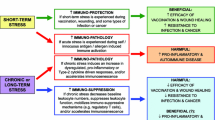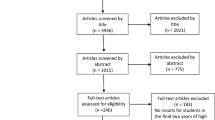Abstract
Diabetes mellitus Type 1 (T1D) is an autoimmune disorder attributed to both genetic and environmental factors. The aim of this study was to identify certain stressful conditions potentially associated with the pathogenesis and/or expression of T1D. The study group included 107 children with diabetes (CD) and 153 controls of comparable age and gender distribution at diagnosis of T1D (10.73±3.62 yr vs 9.59 ±3.42 yr, respectively). The parents of both groups completed a questionnaire on socioeconomic status and stressful life events or adverse situations at home and school. Results: Lower social class was more prevalent among the mothers of CD (p=0.002) in comparison with the controls. Stressful life events (parental death, divorce, parental job loss), problems at home (parental abuse, parental dispute) and at school (poor performance) were more frequently observed in the CD group than in the controls (parental death: p=0.05, job loss: p=0.05, parental abuse: p=0.002, quarrels between parents: p=0.05, and among siblings p=0.002, poor school performance: p=0.037). A stepwise logistic regression analysis indicated that lower maternal social class [odds ratio (OR): 3.86, 95% confidence interval (CI): 1.37,10.9], parental dispute or divorce (OR: 2.78, 95%CI: 0.97,7.95), body mass index (OR: 0.87, 95%CI: 0.78,0.97), increasing age (OR: 1.14, 95%CI: 1.02,1.27) were the factors potentially influencing the occurrence of T1D, while the 2-yr period prior to diabetes occurrence emerged as the most important one (OR: 2.49, 95%CI: 1.14,5.42). Conclusion: Children with diabetes seem to experience certain stressful conditions with significantly increased frequency compared to controls, especially during the 2 yr preceding the diagnosis of T1D, with a higher clustering in those of lower social class. The resultant stress possibly contributes to the development of T1D in genetically susceptible individuals.
Similar content being viewed by others
References
Notkins AL, Yoon JW. Virus-induced diabetes mellitus. In: Concepts in Viral Pathogenesis. Notkins AL, Oldstone MBA, eds. New York: Springer, 1984, 241–7.
Kolb H, Elliott RB. Increasing incidence of IDDM a consequence of improved hygiene? Diabetologia 1994, 7: 729–34.
Kibirige M, Metcalf B, Renuka R, Wilkin TJ. Testing the accelerator hypothesis: the relationship between body mass and age at diagnosis of type 1 diabetes. Diabetes Care 2003, 26: 2865–70.
Sepa A, Wahlberg J, Vaarala O, Frodi A, Ludvigsson J. Psychological stress may induce diabetes-related autoimmunity in infancy. Diabetes Care 2005, 28: 290–5.
Wales JK. Does psychological stress cause diabetes? Diabet Med 1995, 112: 109–12.
Surwit RS, Schneider MS, Feinglos MN. Stress and diabetes mellitus. Diabetes Care 1992, 15: 1413–22.
Hägglöf B, Blom L, Dahlquist G, Lönnberg G, Sahlin B. The Swedish childhood diabetes study: indications of severe psychological stress as a risk factor of type 1 (insulin-dependent) diabetes mellitus in childhood. Diabetologia 1991, 34: 579–83.
Dahlquist G, Blom L, Lönnberg G. The Swedish Childhood Diabetes Study-a multivariate analysis of risk determinants for diabetes in different age groups. Diabetologia 1991, 34: 757–62.
Soltesz G, Jeges S, Dahlquist G; Hungarian Childhood Epidemiology Study Group. Non-genetic risk determinants for type 1 (insulin-dependent) diabetes mellitus in childhood. Acta Paediatr 1994, 83: 730–5.
Thernlund GM, Dahlquist G, Hansson K, et al. Psychological stress and the onset of IDDM in children. Diabetes Care 1995, 18: 1323–9.
Littorin B, Sundkvist G, Nyström L, et al. Family characteristics and life events before the onset of autoimmune type 1 diabetes in young adults: a nationwide study. Diabetes Care 2001, 24: 1033–7.
Borch-Johnsen K, Joner G, Mandrup-Poulsen T, et al. Relation between breast-feeding and incidence rates of insulin-dependent diabetes mellitus. A hypothesis. Lancet 1984, 2: 1083–6.
Bingley PJ, Douek IF, Rogers CA, Gale EA; BOX (Bart’s-Oxford) Study Group. Influence of maternal age at delivery and birth order on risk of type 1 diabetes in childhood: prospective population based family study. BMJ 2000, 321: 420–4.
Lazarus RS, DeLongis A, Folkman S, Gruen R. Stress and adaptational outcomes. The problem of confounded measures. Am Psychol 1985, 40: 770–85.
Germegy N, Masten A. The adaptation of children to a stressful world: mastering of fear. In: Alnold LE ed. Childhood Stress, New York: Wiley International 1990, 459–73.
Life events as stressors in childhood and adolescence. In Lahey BB and Kazdin AE eds. Advances in clinical child psychology, New York: Plenum Press 1982, vol. 5, 219–53.
Wilkinson G. Stress: another chimera. BMJ 1991, 302: 191–2.
Rothenberg EV. The development of functionally responsive T cells. Adv Immunol 1992, 51: 85–214.
Gorsuch AN, Spencer KM, Lister J, et al. Evidence for a long prediabetic period in type I (insulin-dependent) diabetes mellitus in children. Lancet 1981; 2: 1363–5.
Vialettes B, Ozanon JP, Kaplansky S, et al. Stress antecedents and immune status in recently diagnosed type I (insulin-dependent) diabetes mellitus. Diabete Metab 1989, 15: 45–50.
WHO, WHO Study Group of Diabetes Mellitus. WHO Technical Report Series No 727, Geneva: WHO, 1985.
Coddington RD. The significance of life events as etiologic factors in the disease in children. I. A survey of professional workers. J Psychosom Res 1972, 16: 7–18.
Hurme H. Life events in children. J Social Med 1983, 4–5: 246–53.
Liakopoulou M, Alifieraki T, Katideniou A, et al. Children with alopecia areata: psychiatric symptomatology and life events. J Am Acad Child Adolesc Psychiatry 1997, 36: 678–84.
Liakopoulou-Kairis M, Alifieraki T, Protagora D, et al. Recurrent abdominal pain and headache—psychopathology, life events and family functioning. Eur Child Adolesc Psychiatry 2002, 11: 115–22.
Moore CG, Probst JC, Tompkins M, Cuffe S, Martin AB. The prevalence of violent disagreements in US families: effects of residence, race/ethnicity and parental stress. Pediatrics 2007, 119(Suppl 1): S68–76.
Brazelton TB, Suyder DM, Yogman MW. A developmental approach to behavior problems. In: Friedman SB, Hoekelman RA eds. Behavioral pediatrics: Psychosocial aspects of child health care. 2nd ed. New York: Mc Graw Hill 1980, 286–90.
Butland BK, Strachan DP, Lewis S, Bynner J, Butler N, Britton J. Investigation into the increase in hay fever and eczema at age 16 observed between the 1958 and 1970 British birth cohorts. BMJ 1997, 315: 717–21.
Schmid-Ott G, Jaeger B, Meyer S, Stephan E, Kapp A, Werfel T. Different expressions of cytokine and membrane molecules by circulation lymphocytes on acute mental stress in patients with atopic dermatitis in comparison with healthy controls. J Allergy Clin Immunol 2001, 108: 455–62.
Cohen S, Miller GE, Rabin BS. Psychological stress and antibody response to immunization: a critical review in the human literature. Psychosom Med 2001, 63: 7–18.
Essex MJ, Klein MH, Cho E, Kalin NH. Maternal stress beginning in infancy may sensitize children to later stress exposure: effects on cortisol and behaviour. Biol Psychiatry 2002, 52: 776–84.
Hesse E, Main M. Disorganized infant, child, and adult attachment: collapse in behavioral and attentional strategies. J Am Psychoanal Assoc 2000, 48: 1097–127.
Kanner AD, Coyne JC, Schaefer C, Lazarous RS. Comparison of two modes of stress measurement: daily hassles and uplifts versus major life events. J Behav Med 1981, 4: 1–39.
Hyppönen E, Kenward MG, Virtanen SM, et al. Infant feeding, early weight gain and risk of type 1 diabetes. Childhood Diabetes in Finland (DiMe) Study Group. Diabetes Care 1999, 22: 1961–5.
Hyppönen E, Virtanen SM, Kenward MG, Knip M, Akerblom H; Childhood Diabetes in Finland Study Group. Obesity, increased linear growth, and risk of type 1 diabetes in children. Diabetes Care 2000, 23: 1755–60.
Martos-Moreno GA, Barrios V, Soriano-Guillen L, Argente J. Relationship between adiponectin levels, acylated ghrelin levels and short-term body mass index changes in children with diabetes mellitus type 1 at diagnosis and after insulin therapy. Eur J Endocrinol 2006, 155: 757–61.
Altman DG. The case-control study. In: “Practical statistics of medical research”. 1st ed. London: Chapman & Hall, 1991, 94–95.
Mackenzie SG, Lippman A. An investigation of report bias in a case-control study of pregnancy outcome. Am J Epidemiol 1989, 129: 65–75.
Author information
Authors and Affiliations
Corresponding author
Rights and permissions
About this article
Cite this article
Karavanaki, K., Tsoka, E., Liacopoulou, M. et al. Psychological stress as a factor potentially contributing to the pathogenesis of Type 1 diabetes mellitus. J Endocrinol Invest 31, 406–415 (2008). https://doi.org/10.1007/BF03346384
Accepted:
Published:
Issue Date:
DOI: https://doi.org/10.1007/BF03346384




